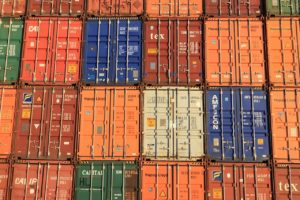
In the April 18 memorandum, Assistant Secretary for Export Enforcement Matthew Axelrod stressed that “effective compliance is the first line of effective enforcement” as it relates to protecting sensitive U.S. technologies and goods from being used by adversaries. “Simply put, technology protection is a core national security priority,” he wrote.
The memo directs U.S. companies and higher education institutions to have “proper compliance systems in place to identify, prevent, and mitigate export control violations,” which Axelrod said includes a process for making VSDs to BIS’s Office of Export Enforcement about “parties’ own possible violations of the Export Administration Regulations (EAR); and disclosures about possible EAR violations by someone else.”
The guidance seeks to incentivize U.S. companies and academia to submit a VSD concerning “significant” possible EAR violations, which Axelrod described as “the types of violations that reflect potential national security harm.” When a number of minor or technical violations appear close in time, “one overarching submission (as opposed to multiple separate VSDs)” can be submitted to help streamline the process, the memo states.
A VSD for a non-egregious violation that is “timely, comprehensive, and involves full cooperation” could result in the base penalty amount being significantly reduced, or potentially even “full suspension of the penalty,” Axelrod wrote. “Even in an egregious case, the base penalty amount is reduced up to one-half of the statutory maximum penalty applicable to the violation.”
On the flip side, moving forward, BIS will now consider as an aggravating factor under its existing guidelines circumstances where “a significant possible violation has been uncovered by a party’s export compliance program, but no VSD has been submitted.”
The memo further reminds U.S. companies and universities that come forward about potential EAR violations by others will receive cooperation credit. If that tip results in an enforcement action, “then we will consider that a mitigation factor if a future enforcement action, even for unrelated conduct, is ever brought against the disclosing party,” Axelrod wrote.
Moreover, Axelrod added, when the conduct disclosed includes not just a potential export control violation, but also a potential violations of U.S. sanctions programs, substantial financial awards may be available under the Financial Crimes Enforcement Network’s (FinCEN) whistleblower program. “Individuals who provide FinCEN or the Department of Justice with information about such violations may be eligible for substantial financial awards if the information they provide ultimately leads to a successful enforcement action.” ![]()
Jaclyn Jaeger is a contributing editor at Compliance Chief 360° and a freelance business writer based in Manchester, New Hampshire.

